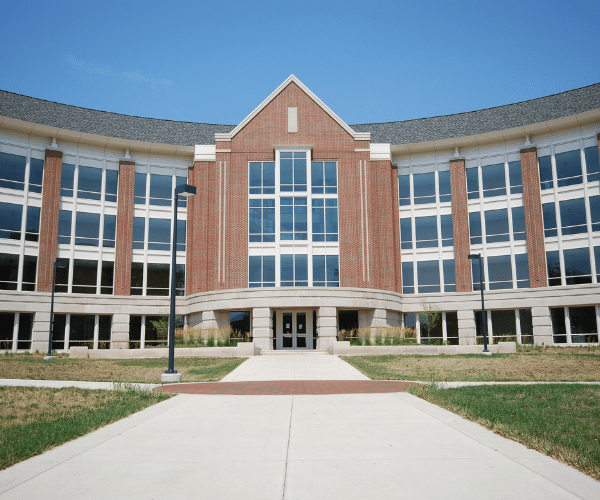January 2, 2024 min read

Vector Solutions Supports the Unique Needs of Community Colleges
Industry:
Solution:

Students who opt to go to community colleges instead of four-year colleges do so for many reasons, including cost, smaller class sizes, flexible schedules or availability of online courses, specific certifications or programs not available at four year schools, and transferrable credits. They also see community college as a worthwhile investment in terms of preparing them quickly for the workforce while meeting their unique schedules or preparing them for a career change later in life.
Understanding the Characteristics of the Student Population
Students at community colleges are more heterogenous than those at four-year schools. Today, community colleges serve more dual-enrolled high school students and first-time enrolled high school graduates than ever before. Historically and still, however, community college students tend to be older, more diverse, more likely to be parenting, and more likely to complete coursework through distance-learning than students at four-year colleges. There are also differences when it comes to students’ mental health and their likelihood of having experienced domestic violence or sexual assault.
- Mental health: While two-year and four-year students self-report similarly high level of fair or poor mental well-being (57% v 56%) data from Healthy Minds Study reflects that community college students, especially those aged 18-22, had “significantly higher prevalence” of serious mental health conditions as compared to peers at four-year institutions. It also reported “significantly lower therapy use” among community college students than among those who attend four-year institutions.
- Diversity: The student body at community colleges tends to be more diverse than the student body at four-year institutions – roughly 48% Hispanic, 39% Black, 52% Native American and 34% Asian/Pacific Islander.
- Sexual assault/domestic violence: Community college students are more likely to report having experienced domestic violence and sexual assault than peers at 4-year institutions.
When community college practitioners understand their student populations they can identify and implement the appropriate resources to support students’ needs. For instance, they can provide targeted mental health resources, diversity and inclusion training and sexual assault prevention programming to help support both students and staff members in these critical areas. These programs are most effective when they are convenient for students to access, so prevention courses and resources that students can access online are good options.
Supporting Compliance and Workforce Preparedness
Community colleges also have different challenges – for instance, when it comes to complying with federal mandates and preparing students for the workforce.
Compliance: Community colleges are required to meet the same federal regulations as four-year colleges and universities and state regulations that focus on all higher education institutions or that target public institutions also apply to community colleges. However, community college personnel often struggle to understand or comply with federal and state mandates due to a range of issues including personnel turnover, multiple areas of responsibility, budget concerns or inability to attract and hire qualified personnel in compliance/risk mitigation areas. As an example, in one state-level study, only two of 28 community colleges fully complied with DFSCA regulations. Providing training to support staff members on critical compliance issues will help.
Workforce preparedness: Students are increasingly making decisions about college based on how the degree will support immediate career and workplace success, and community and technical colleges are positioned to produce workforce-ready graduates. However, too often, this doesn’t happen. Employers also do not perceive that community colleges are succeeding at preparing graduates for success. According to one study, when employers were asked whether “Community colleges are producing the work-ready employees that my company needs,” only 26% “strongly agreed,” and only 36% “agreed.” Troublingly, when asked whether their institutions were producing workforce-ready graduates, community college leaders “strongly agreed” only 21% of the time.
According to the Community College Research Center, out of every 100 students who want to, only 31 will transfer to a four-year institution, and only 16 will complete a bachelor’s degree within six years. More than half of the students attending community colleges leave school without completing a certificate or degree of any kind.
Adopting curriculum and resources that will help support career readiness skills will go a long way toward retaining students and improving their chances of success after they graduate from community college. This, in turn, can improve enrollment rates and increase the value and ROI of community colleges.
Because of the central role that community colleges serve for their entire community, it is important for them to provide relevant professional development and resources to both students and staff members to leverage their unique strengths, help address challenges and set students, staff members and the institution up for success.
How Vector Solutions Can Help
When community colleges are able to provide resources, education and support for students that address the specific challenges and goals noted above, it can help with student retention and can also help create a safer, more inclusive environment for students. Vector Solutions offers expert-authored online courses for students, faculty, administrators, and staff members at higher education institutions, including several courses that were designed specifically with community colleges in mind.
Community College-Specific Student Courses
- Sexual Assault Prevention for Community Colleges
- AlcoholEDU Ongoing
- Leadership and Career Readiness
Vector also offers additional industry products that address specific needs of community colleges including:
- Vector EHS Management to support compliance with environmental, health and safety regulations
- Vector LiveSafe for two-way safety and security risk communications
- Commercial & Public Sector course catalogs with industry-specific, accredited training
- K-12 course catalogs with developmentally-appropriate courseware for dual-enrolled students
Vector’s courses include pre-, post-, and follow-up surveys to gain insights into changes in attitudes, beliefs, behaviors, and experiences, and to measure the course’s impact.
To learn more visit https://www.vectorsolutions.com/industries/education/higher-education/







